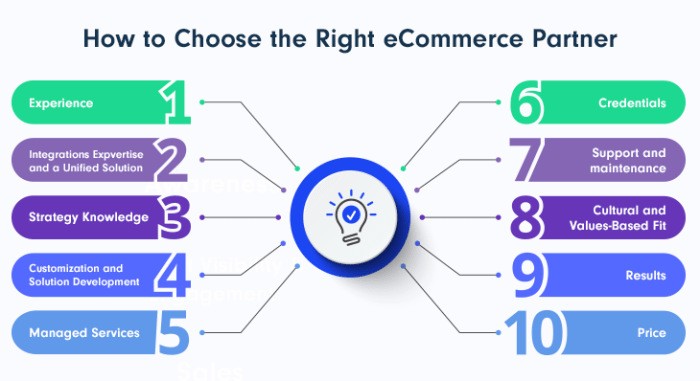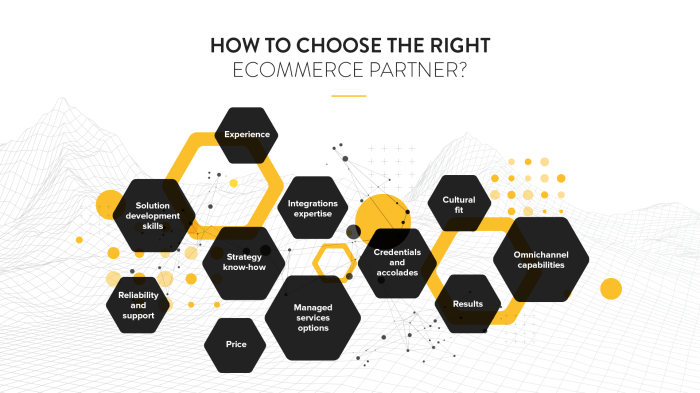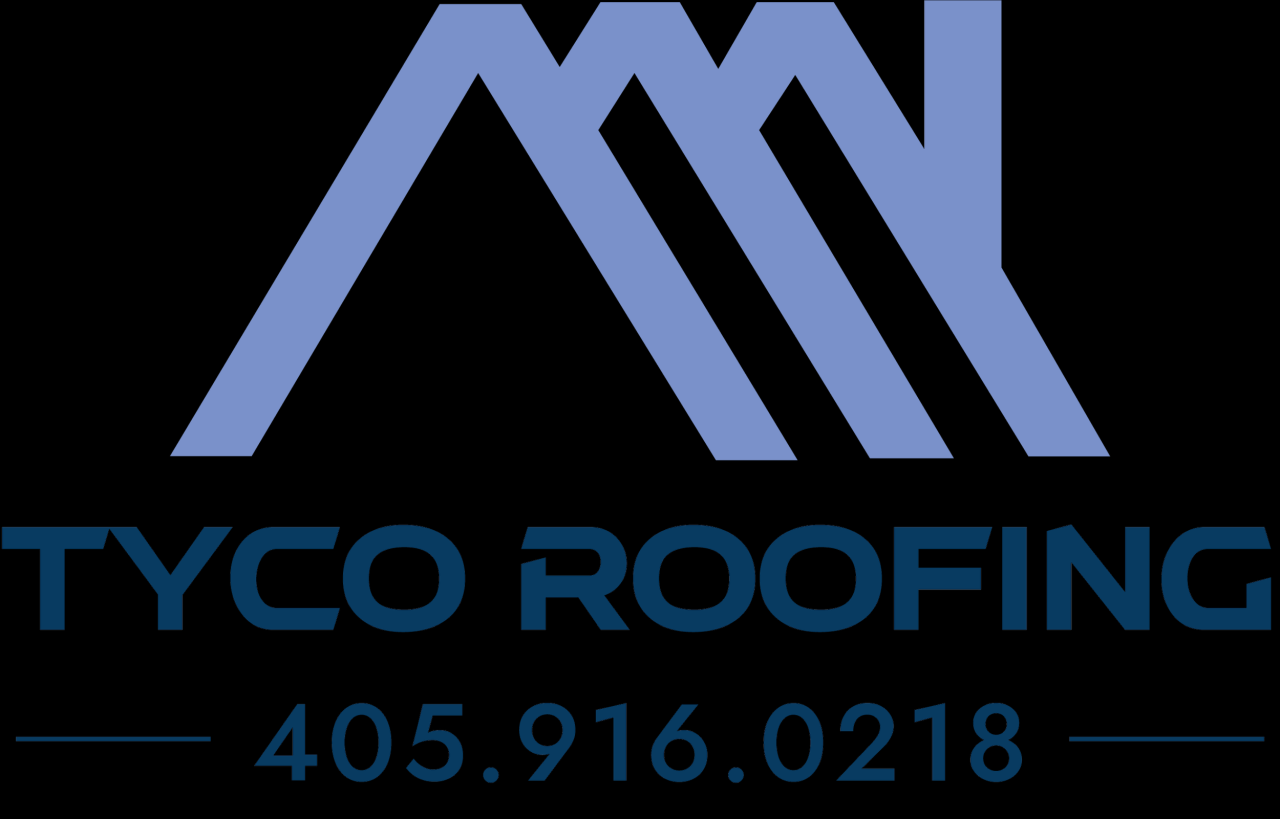How to Select the Right SEO Partner for Your E-Commerce Site: A Comprehensive Guide
Embarking on the journey of finding the perfect partner for your e-commerce site can be both challenging and rewarding. As the digital landscape continues to evolve, the importance of selecting the right partner becomes increasingly crucial. Let's delve into the key considerations and factors that can help you make an informed decision for your business.
Factors to Consider When Selecting an Partner
When choosing an partner for your e-commerce site, there are several crucial factors to consider to ensure the success of your online business. Here are the essential considerations to keep in mind:
Experience
Experience plays a vital role when selecting an partner. An experienced partner will have a proven track record of successful campaigns and a deep understanding of the ever-evolving search engine algorithms. This expertise can significantly impact the effectiveness of your strategies and ultimately improve your site's visibility and ranking.
Reputation and Track Record
It is essential to research the reputation and track record of potential partners. Look for reviews, case studies, and testimonials from past clients to gauge their performance and reliability. A reputable partner with a strong track record of delivering results is more likely to help you achieve your e-commerce goals.
Transparency and Communication
Effective communication and transparency are key factors in a successful partnership with an agency. Make sure the agency provides regular updates, reports, and explanations of their strategies and tactics. Clear communication ensures that you are informed about the progress of your campaigns and can address any concerns or questions promptly.
Specialized Agency vs. General Digital Marketing Agency
When choosing an partner, you must decide between a specialized agency or a general digital marketing agency. While a general agency may offer a wide range of services, a specialized agency typically has more in-depth knowledge and expertise in strategies.
Specialized agencies can provide tailored solutions specifically designed to improve your e-commerce site's search engine visibility and drive organic traffic.
Potential Risks of Selecting the Wrong Partner
Selecting the wrong partner can have detrimental effects on your e-commerce site. Risks may include using outdated or black-hat techniques that can result in penalties from search engines, damaging your site's reputation and ranking. Additionally, ineffective strategies can waste valuable time and resources without producing tangible results, hindering the growth of your online business.
Evaluating the Reputation of Agencies

When selecting an partner for your e-commerce site, evaluating the reputation of agencies is crucial to ensure you partner with a reliable and effective service provider. Here are some key methods for researching and assessing the reputation of agencies:
Client Testimonials and Case Studies
Client testimonials and case studies play a vital role in the decision-making process when selecting an partner. These testimonials provide insights into the experiences of past clients and showcase the results achieved by the agency. Look for specific details on the success stories and results delivered by the agency to get a sense of their capabilities.
Online Reviews and Ratings
Online reviews and ratings can also offer valuable information on the credibility and performance of agencies. Platforms like Google My Business, Yelp, and industry-specific directories often feature reviews from clients who have worked with the agency. Pay attention to the overall rating, as well as the content of the reviews, to gauge the reputation of the agency.
Checklist for Assessing Reputation
To effectively assess the reputation of potential partners, consider creating a checklist that includes the following criteria:
- Years of experience in the industry
- Client portfolio and case studies
- Transparency in communication and reporting
- Industry recognition and awards
- Quality of content and link-building strategies
- Response to negative feedback or complaints
By systematically evaluating these factors, you can make an informed decision when choosing an agency for your e-commerce site.
Understanding Pricing Structures and Contracts
When selecting an partner for your e-commerce site, it is crucial to have a clear understanding of the pricing structures and contracts offered by different agencies. This will help you make an informed decision and avoid any unexpected costs or issues down the line.
Different Pricing Models
- Monthly Retainer: This is a common pricing model where you pay a fixed monthly fee for a set of services agreed upon in advance.
- Hourly Consultation: Some agencies charge by the hour for consulting services, which can vary depending on the expertise of the consultant.
- Performance-Based: In this model, payment is based on the results achieved, such as increased website traffic or higher search engine rankings.
Key Elements in an Contract
- Scope of Work: Clearly define the services to be provided, including research, on-page optimization, link building, and reporting.
- Timeline: Establish a timeline for deliverables and milestones to track progress effectively.
- Pricing and Payment Terms: Detail the pricing structure, payment schedule, and any additional costs that may arise during the project.
- Termination Clause: Include terms for terminating the contract if either party is not satisfied with the results or performance.
Importance of Transparency
Transparency in pricing and contracts is essential to build trust and ensure a mutually beneficial partnership between the e-commerce site and the agency.
It is crucial to have a clear understanding of what services are included in the pricing, any potential additional costs, and the terms of the contract to avoid misunderstandings or disputes in the future.
Comparison of Pricing Structures
| Agency | Pricing Structure | Implications |
|---|---|---|
| Agency A | Monthly Retainer | Fixed costs but may limit flexibility in services provided. |
| Agency B | Performance-Based | Potentially higher costs but aligns incentives with results. |
| Agency C | Hourly Consultation | Costs can vary depending on the expertise of the consultant. |
Consider the pricing structures of various agencies carefully to determine which model best suits your e-commerce site's needs and budget.
Communication and Reporting Expectations
Effective communication between e-commerce businesses and their partners is crucial for the success of their partnership. Clear and open lines of communication ensure that both parties are on the same page regarding goals, strategies, and expectations. Regular reporting and performance tracking further enhance this collaboration by providing concrete data on the progress of efforts.
Importance of Clear Communication
Clear communication helps prevent misunderstandings and ensures that both the e-commerce business and the partner are working towards the same objectives. It allows for the alignment of strategies and the timely resolution of any issues that may arise.
- Hold regular meetings or calls to discuss progress, challenges, and upcoming strategies.
- Utilize project management tools like Trello or Asana to track tasks and communicate effectively.
- Establish a single point of contact for both parties to streamline communication and avoid confusion.
Significance of Regular Reporting
Regular reporting provides transparency and accountability in the partnership. It allows both parties to assess the effectiveness of strategies, identify areas for improvement, and make data-driven decisions moving forward.
- Set up monthly or quarterly reports that include key performance indicators (KPIs) and metrics.
- Use tools like Google Analytics, SEMrush, or Moz to track website traffic, rankings, and other important metrics.
- Schedule regular check-ins to review reports and discuss insights for optimization.
Tools for Transparent Communication and Reporting
There are various tools and platforms available to facilitate transparent communication and reporting between e-commerce businesses and their partners. These tools help streamline workflows, centralize data, and ensure that both parties are informed and engaged throughout the partnership.
- Collaboration tools like Slack or Microsoft Teams for real-time communication and file sharing.
- reporting tools like Ahrefs or Raven Tools for comprehensive data analysis and reporting.
- Custom dashboards or reporting templates to tailor reporting to specific goals and metrics.
Last Recap

In conclusion, choosing the right partner for your e-commerce site is a strategic decision that can have a profound impact on your online success. By carefully evaluating factors such as experience, reputation, pricing, and communication, you can ensure a fruitful partnership that drives your business growth in the digital realm.
Top FAQs
What are the potential risks of selecting the wrong partner?
Choosing the wrong partner can result in wasted resources, damage to your website's reputation, and even penalties from search engines due to unethical practices.
How do client testimonials and case studies help in evaluating the reputation of agencies?
Client testimonials and case studies provide insights into the agency's past performance, success stories, and client satisfaction levels, helping you gauge their credibility and expertise.
What are some effective communication strategies between e-commerce businesses and their partners?
Regular meetings, clear goal setting, open channels of communication, and prompt responses are essential for maintaining a healthy and productive relationship between e-commerce businesses and their partners.



